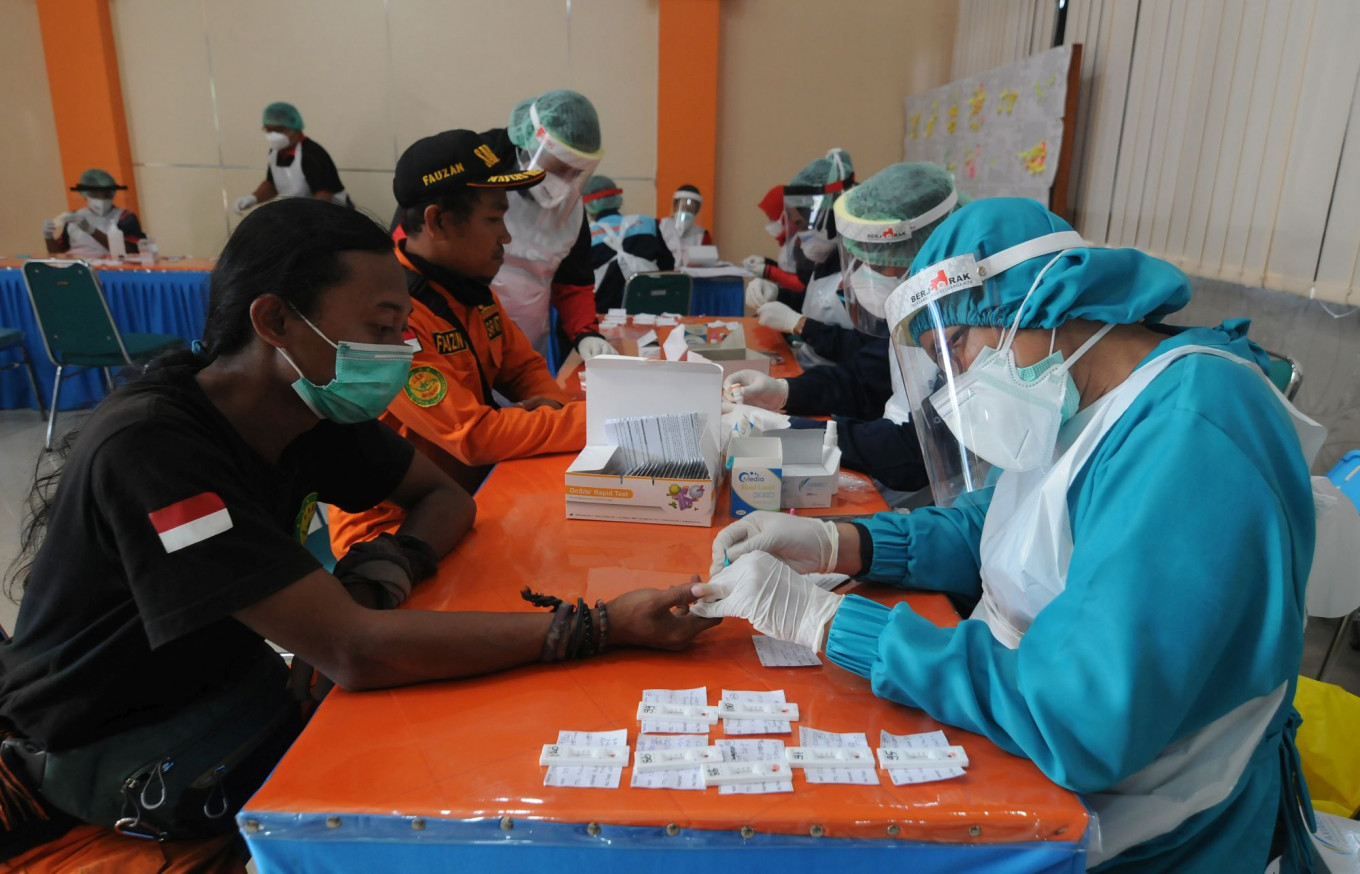Popular Reads
Top Results
Can't find what you're looking for?
View all search resultsPopular Reads
Top Results
Can't find what you're looking for?
View all search resultsTask force calls for health protocol-compliant disaster shelters
"We want temporary shelters to be well managed. They need to be clean and sufficient [for evacuees] at all times so that the risk of COVID-19 transmission and other diseases is low," the national COVID-19 spokesman said.
Change text size
Gift Premium Articles
to Anyone
N
ational COVID-19 spokesman Wiku Adisasmito has asked the government to build temporary shelters that comply with COVID-19 health protocols to prepare for possible natural disasters.
"We want temporary shelters to be well managed. They need to be clean and sufficient [for evacuees] at all times so that the risk of COVID-19 transmission and other diseases is low," Wiku said in a press conference on Tuesday.
He added that the design of the shelters should allow evacuees to maintain physical distance and that health professionals should always be available on site.
The government also needed to build a tight COVID-19 monitoring system at the shelters, he said, including testing and tracing when necessary.
“Good coordination between regional administrations, the Indonesian Military, the National Police and the public is essential to prevent the occurrence of COVID-19 clusters at temporary shelters," Wiku said.
Wiku advised residents affected by natural disasters to go to temporary shelters only as a last resort. Instead, he urged evacuees to stay at boarding houses or motels.
He also asked evacuees to bring spare masks, hand sanitizer and utensils to the shelters.
"Evacuees should always follow health protocols, wear masks, wash their hands frequently and maintain physical distance at the temporary shelters. Remember, adhering to health protocols is an important step in protecting ourselves and our loved ones from COVID-19," Wiku said.
Read also: Hundreds leave homes in anticipation of Merapi eruption
Indonesia is prone to geological and hydrological disasters, such as flash floods, landslides, tornadoes and volcanic eruptions.
The National Disaster Mitigation Agency (BNPB) reported in August that Indonesia had witnessed 1,928 disasters in 2020, consisting of 12 earthquakes, five volcanic eruptions, 256 forest fires, 16 droughts, 726 floods, 367 landslides, 521 tornadoes and 24 tidal waves and cases of coastal erosion, as well as the COVID-19 outbreak.
Last week, emergency response authorities evacuated 1,294 people from parts of Yogyakarta and Central Java in anticipation of heightened volcanic activity at Mount Merapi, following a volcano tectonic earthquake that occurred a day prior.
The frequent occurrence of disasters has raised concerns about protecting evacuees from COVID-19 at temporary shelters.
In October, two residents of Cilacap, Central Java, were admitted to the Banyumas Medika Hospital for intensive care after contracting COVID-19 at a flood shelter.
The task force had previously warned the public about possible infection clusters at flood shelters as the rainy season approached.
“We are calling on regional governments to be vigilant to minimize the risk of COVID-19 transmission. One potential source of COVID-19 clusters could be flood victims’ shelters,” said Wiku in September. (nal)
Editor’s note: This article is part of a public campaign by the COVID-19 task force to raise people’s awareness about the pandemic.










